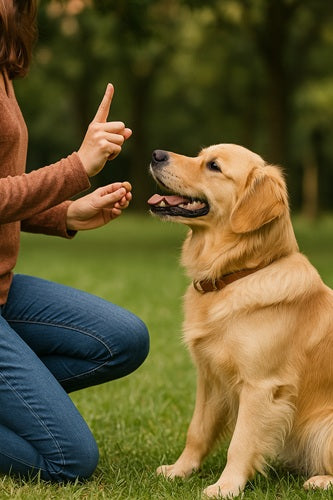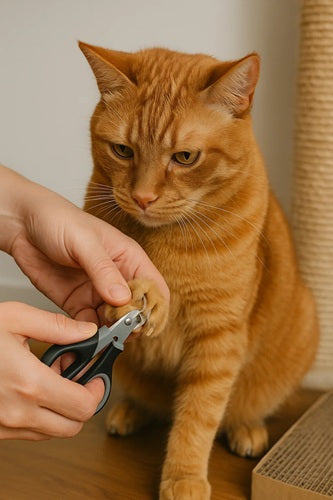Neutering Your Dog: Everything You Need to Know
🐕 Neutering Your Male Dog 🐕
A Complete Guide for Caring Pet Parents
Understanding Your Dog's Journey
Pet parents of male dogs know how difficult it can be when your little guy becomes an adult and experiences hormonal changes after reaching maturity. There are many behavioral changes that take place at this time, including the need to rub against surfaces to relieve his urges. These changes can be quite challenging for some owners. One of the ways pet parents deal with these hormonal changes is to neuter the dog. There are many benefits to neutering, including making him more calm. Let’s understand neutering in further detail.
What is Neutering?
Neutering or castration is the common term used to describe the surgical procedure wherein both testicles are removed so as to sterilize a male dog, thereby ceasing his ability to impregnate a female dog. In other words, the removal of both testicles makes him infertile. Neutering a male dog not only helps to keep a check on his behavioral changes but to ensure a healthier dog with a longer lifespan.
Benefits of Neutering
🏥 Prostate Health
Reduces the risk of prostatic hyperplasia (enlarged prostate that comes as your dog gets older) and prostate infection.
🛡️ Disease Prevention
Reduces the risk of hormone related diseases like perianal adenoma (unharmful tumor around anus).
🎯 Cancer Prevention
Removes the risk of testicular cancer, the second most common cancer in unneutered dogs.
🧠 Behavioral Improvement
Removes the urge to mate which consequently reduces other negative behaviors.
📈 Longer Lifespan
Neutered dogs are known to live longer than unneutered dogs.
Best Time to Neuter Your Dog
The best time to neuter your dog will depend on several factors, including his breed and overall health. Generally puppies can be neutered around six month of age. For large breed dogs, waiting until they are 14 to 16 months of age may be more suitable to ensure their bones have properly matured.
⚠️ Important Timing Considerations
Neutering your dog at a young age will reduce the risk of him developing unwanted behavioral problems. If you neuter him after he’s already developed these behaviors, you might not see any significant improvement. Health can also play a factor in deciding when to neuter. If your dog is developing testicular cancer, you need to neuter him immediately before the cancer spreads.The best way to make sure your dog is ready to be neutered is to get him examined by a vet.
After-Effects of Neutering
Most dogs recover relatively quickly from neutering. That doesn’t mean that special care and observation isn’t needed. In some cases, there may be signs of sickness like vomiting, feeling extremely lethargic and even signs of internal bleeding. Vets may recommend overnight observation at their facility if such symptoms are displayed.
After the surgery, your pet may lose his appetite but that is nothing to worry about. It is recommended to provide small meals anyway
- A dog in pain will display symptoms such as excessive drooling, shaking his head or low whining which should be checked out just in case. Contact your vet if these symptoms occur.
- Keep an eye out for bleeding or excessive fluid drainage from the incision site. A small amount of fluid drainage is expected, but an excess amount may need medical attention.
- An unusually-distended abdomen or pale mucous membranes are also cause for immediate concern, as this may be evidence of internal bleeding (uncommon but possible).
🚨 Recovery Guidelines
Most dogs will not defecate for 1 to 3 days after surgery which is totally normal and no need to be alarmed. You will also have to restrict activities like running, swimming, and even climbing stairs for proper post-operative care.
Misconception about neutering
There are many misconceptions regarding the long term effects of neutering your male dog. The most common ones are weight gain and personality changes.
- It comes to the attention of many owners that their dog’s weight increases after the surgery but neutering may not be the cause for this gain
- A dog gets neutered when his metabolism naturally reduces, ie. as he transitions from puppy to adult dog.
- Many neutered dogs also put on excess weight because a lack of adequate exercise coupled with intake of excess calories in their regular diet.
- Secondly, neutering does not affect your dog’s personality and certainly does not make him any less lively or playful than before.
- In fact, unwanted behaviors such as aggression and urine marking in the house may be reduced after neutering.
- It is advisable to consult a vet regarding any hesitations or queries that you have regarding the process.
Is Neutering Necessary for All Dogs?
The decision to neuter or not is a very relative decision and there are various factors to be considered while making the decision. Each dog has his or her own set of health and lifestyle needs. If you have an extremely healthy dog or one who does not display extreme behavioral changes, you might choose not to neuter him. Usually pet parents opt for neutering when the hormonal changes cause the dog to become too aggressive. If your dog’s behavior isn’t turning aggressive or unmanageable, then neutering may not be necessary.
💭 Making the Decision
Neutering your male dog is a tough decision which needs considerable thought and deliberation. In order to make a well informed decision, be sure to do your research and plan ahead. Being his best friend, you are aptly positioned to take a decision that keeps his well being in mind.








